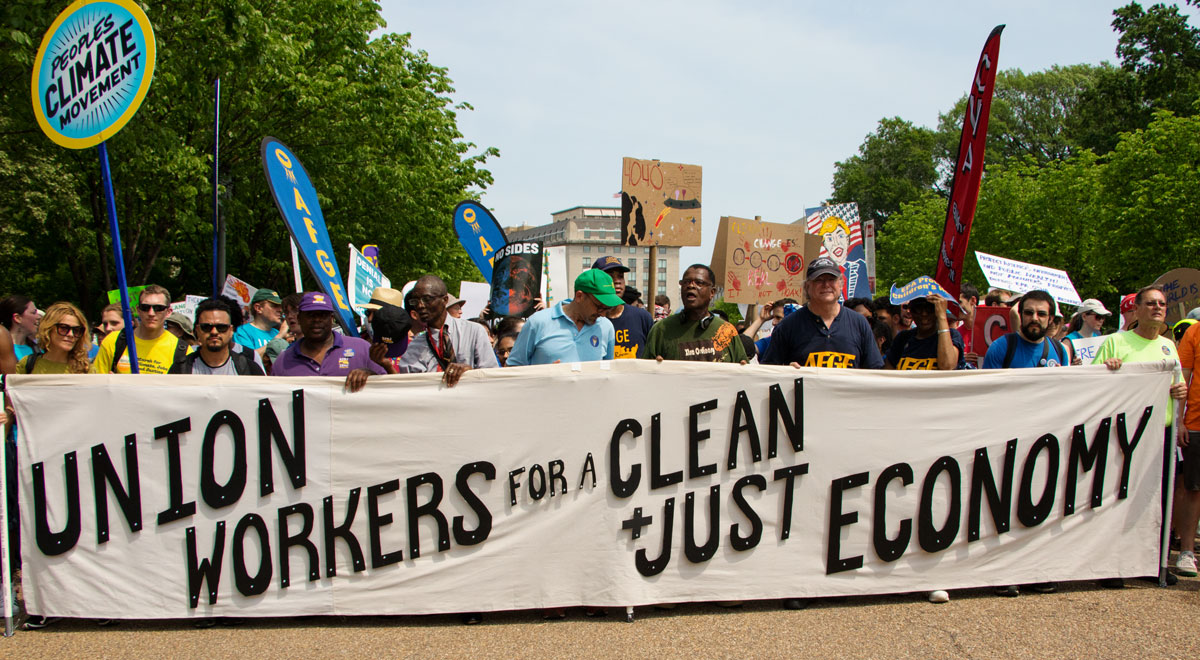
Holden Hopkins is a student at Harvard Law School.
In today’s News & Commentary, Chicago teachers to make climate demands as part of next CBA negotiations and environmental lawyers in the Justice Department begin a union campaign.
With contract negotiations beginning this Friday, the Chicago Teachers’ Union has pledged to bring its “green schools” initiative to the city. As a part of that initiative, the union is seeking to update school infrastructure to cut emissions, electrify the school district’s bus fleet, introduce training programs for students to pursue green energy jobs, and set a 2035 goal of net-zero emissions for the district. CTU played an important role in supporting the election of Mayor Brandon Johnson, a former teacher and union organizer, giving the union reason for optimism as they come to the bargaining table.
These climate-related demands from one of the nation’s most powerful teachers’ unions are not the first example of unions using their power to fight for a liveable planet. Los Angeles teachers went on strike last year around demands that included the incorporation of climate in more administrative decisions and curricula. Additionally, Ben shared this letter last year from environmental and climate advocates in support of the UAW’s strike against the “Big Three” automakers as consistent with goals of climate progress. And as I reported in February, a coalition of Service Employees International Union locals and unions representing teachers in the Twin Cities included climate demands in their “What Can We Win Together” campaign.
Staying at the intersection of labor and the environment, trial attorneys at the Justice Department’s Environment and Natural Resources Division have begun a campaign with the goal of collecting signatures from half of the 350 eligible lawyers in the division. As of now, organizers are optimistic about reaching their goal of a representation election through the Federal Labor Relations Authority by October of this year.
Chief among their concerns are return-to-office mandates, interventions against civil service protections from political officials, and the use of artificial intelligence in legal document writing. Should they succeed in their union campaign, they would be the first union of litigating attorneys in the history of the Justice Department.






Daily News & Commentary
Start your day with our roundup of the latest labor developments. See all
January 28
Over 15,000 New York City nurses continue to strike with support from Mayor Mamdani; a judge grants a preliminary injunction that prevents DHS from ending family reunification parole programs for thousands of family members of U.S. citizens and green-card holders; and decisions in SDNY address whether employees may receive accommodations for telework due to potential exposure to COVID-19 when essential functions cannot be completed at home.
January 27
NYC's new delivery-app tipping law takes effect; 31,000 Kaiser Permanente nurses and healthcare workers go on strike; the NJ Appellate Division revives Atlantic City casino workers’ lawsuit challenging the state’s casino smoking exemption.
January 26
Unions mourn Alex Pretti, EEOC concentrates power, courts decide reach of EFAA.
January 25
Uber and Lyft face class actions against “women preference” matching, Virginia home healthcare workers push for a collective bargaining bill, and the NLRB launches a new intake protocol.
January 22
Hyundai’s labor union warns against the introduction of humanoid robots; Oregon and California trades unions take different paths to advocate for union jobs.
January 20
In today’s news and commentary, SEIU advocates for a wealth tax, the DOL gets a budget increase, and the NLRB struggles with its workforce. The SEIU United Healthcare Workers West is advancing a California ballot initiative to impose a one-time 5% tax on personal wealth above $1 billion, aiming to raise funds for the state’s […]